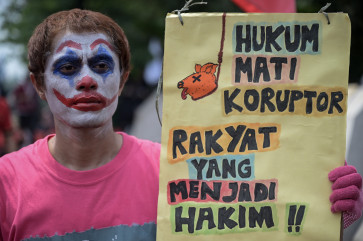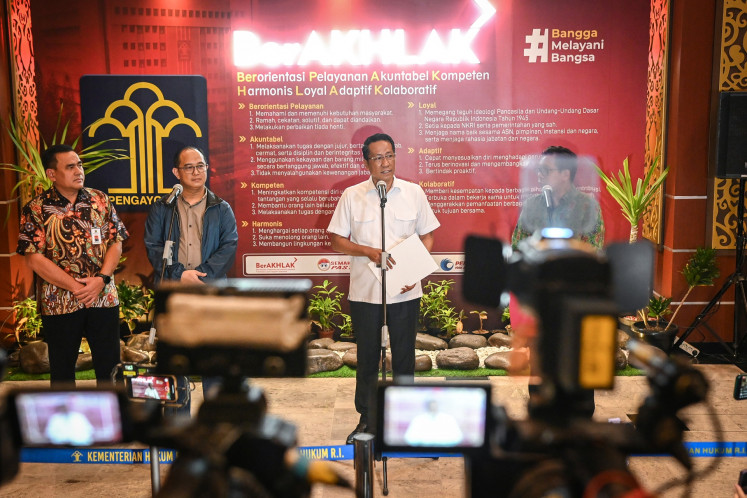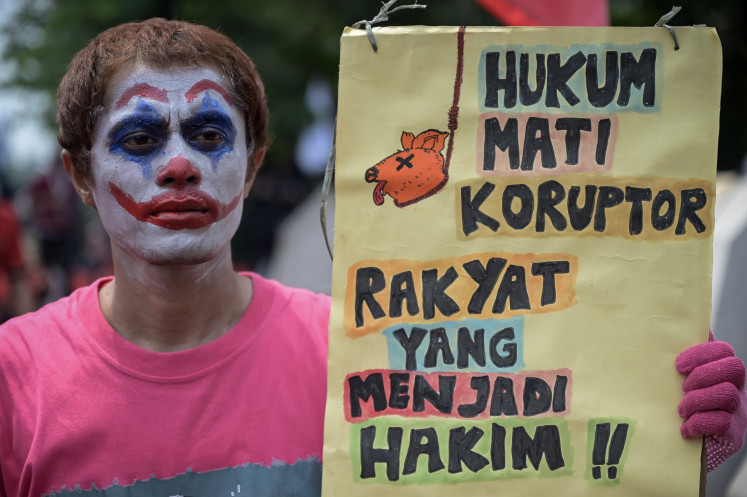Popular Reads
Top Results
Can't find what you're looking for?
View all search resultsPopular Reads
Top Results
Can't find what you're looking for?
View all search resultsUN maintains central role in world diplomacy
This year’s debate of the United Nations General Assembly has produced substantial progress and highlighted the centrality of the world body in diplomacy, in setting global norms and harnessing the power of partnerships for development, a UN official has claimed
Change text size
Gift Premium Articles
to Anyone
T
his year’s debate of the United Nations General Assembly has produced substantial progress and highlighted the centrality of the world body in diplomacy, in setting global norms and harnessing the power of partnerships for development, a UN official has claimed.
“From advancing efforts to tackle the complex crisis in Africa’s Sahel region to generating new commitments to ensure education for millions of children, this year’s high-level session of the UN General Assembly made substantial progress,” said UN Deputy-Secretary-General Jan Eliasson in a press conference at UN headquarters in New York on Tuesday.
More than 100 heads of state, government and foreign ministers as well as numerous finance, health, environment and development ministers participated in the general debate, held from Sept. 25 to Oct. 1.
“We received confirmation of the UN as a good meeting place,” he added, citing that during the week, UN Secretary-General Ban Ki-moon had more than 150 meetings and attended 50 events.
Dozens of regional organizations, civil society groups, business leaders, philanthropists, goodwill ambassadors, messengers of peace and others came through the UN’s doors for various events held on the margins of the general debate, looking at issues such as maternal and child health, nutrition, polio and nuclear terrorism.
General Assembly President Vuk Jeremic underscored the fact that the UN was only as strong as its members allowed it to be. ”Let us now dedicate ourselves to the hard work ahead, which begins in earnest as early as tomorrow. Let us try to be more transparent and efficient in how we conduct our affairs, making the best use of our time and resources to advance common objectives,” Jeremic said at the closing of the general debate on Monday.
Established in 1945 and providing a forum for multilateral discussions of the full spectrum of international issues covered by the UN Charter, the General Assembly occupies a central position as the world body’s chief deliberative, policy-making and representative organ.
Eliasson said the past week’s sessions had produced important commitments for the Millennium Development Goals (MDGs), which seek to end poverty and hunger, achieve universal primary education; improve child health, boost maternal health, combat HIV/AIDS, malaria and other diseases, ensure environmental sustainability, and attain a global partnership for development, all by 2015.
“We should never forget that we still have work to do on the present MDGs. There are grave deficiencies in the achievement of these goals,” said Eliasson, calling for “new energy” to achieve the targets.
He highlighted progress, however, on developing a comprehensive strategy to address the crisis in
the Sahel region of West Africa, marked by political turmoil, extreme climatic conditions and fragile economies that have left 18 million people at risk of food insecurity.
There were also new commitments made on preventing nuclear terrorism as well as support for the political transitions in Myanmar, Somalia and Yemen.
During the annual high-level event that accompanies the general debate, Under-Secretary-General for Legal Affairs and UN Legal Counsel Patricia O’Brien, said forty states had either signed or ratified international treaties on a range of issues, from protecting children from violence to promoting the rights of people with disabilities.
“States have once again manifested their firm belief in the importance of international treaty law,” she said on Tuesday.
“The high number of states becoming parties to various treaties makes this one of the most important treaty events in recent years,” said O’Brien, adding that “it really supports and strengthens the rule of law”.
She mentioned two states — Indonesia and Swaziland — that had become parties to the Optional Protocol to the Convention on the Rights of the Child (CRC) on the Sale of Children, Child Prostitution and Child Pornography.
Indonesia and Swaziland, along with Nigeria, also became parties to another Optional Protocol to the CRC — on the Involvement of Children in Armed Conflict. The protocol serves to ensure that children will not be forced to fight in wars or be pressed into military service.










